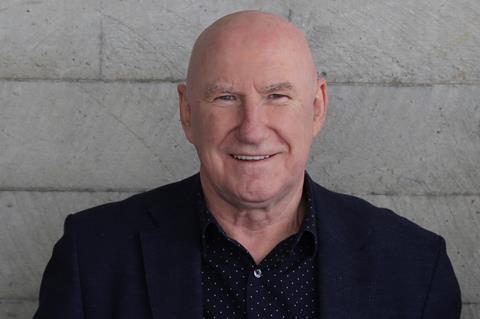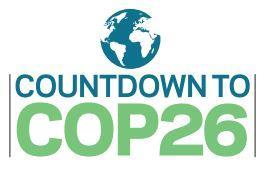An awful lot is riding on the COP26 conference in my home town in November, says Jack Pringle. We must lead by example and all make a difference

We live in a time of two pressing global challenges, both of which can only be solved through science: the coronavirus pandemic and climate change.
With coronavirus none of us is safe until all of us are safe. With climate change, the air knows no boundaries and we cannot save the planet for our habitation until we all act together.
We have been trying for over 20 years to get global agreements to the climate problem. The Kyoto protocol in 1997, ratified in 2005, was the first major step. But the global credit crunch in 2007 put paid to that as the world decided it could not afford to be green.
Then we had COP 21 in Paris in 2015, which Donald Trump famously reneged on. Now, as David Mellor notoriously put it, on another subject, “we are drinking in the last-chance saloon” this time in Glasgow at COP 26 this November.
Even Boris Johnson gets it, with his shuttle diplomacy and his “you’ve all got to grow up” speech to the UN. Rich you may say coming from him, but he has a familial background in sustainability and, with one eye on history, he can see the importance of Glasgow to his legacy.
Marginal gains count – and we have to lead by example if we are to have any credibility in persuading other countries to join the global effort
Small-minded pragmatists might point out that we are a country of only 60 million on a planet of nearly eight billion people, so why should we break our backs to achieve marginal gains in limiting carbon dioxide output when China – for example – despite pledging not to build any more coal-fired power stations in other people’s countries is currently building 61 in its own?
>> More of our Countdown to COP26 coverage
Well, the answer is that marginal gains count – and we have to lead by example if we are to have any credibility in persuading other countries to join the global effort. In addition, if in 2007 we thought that we could no longer afford to be green, now we see the smart economic future to be in green industries. We cannot afford not to go green, in more ways than one.
The built environment accounts for 40% of UK emissions, so what we do in the construction industry counts – a lot. A big responsibility falls on our industry’s various organisations’ shoulders to lead and to coordinate our actions on climate change.
I was president of the RIBA back in 2005-07 when we were all pushing hard on climate change post-Kyoto, only for it all to stall post-2007. Now I have re-engaged with the RIBA as chair of its trustee board, which runs the Institute. With Simon Allford, the new president, we are again pushing hard on climate change running up to Glasgow – and beyond.
We are doing this in three principal ways: promoting the RIBA 2030 climate challenge including its data reporting protocol, a built environment summit hosted with Architects Declare at the RIBA and the establishment of a RIBA climate action hub.
The RIBA 2030 climate challenge includes updated targets, a “how to talk to clients” guide, core guidance documents, carbon data sheets with calculation guidance and an events listing. It’s a carbon toolkit for practices.
The built environment summit takes place at the RIBA on 28-29 October. It is a call to action for built environment professionals across the world.
We will be submitting recommendations to governments ahead of COP26. It’s a major, timely initiative
Participating parties include C40 Cities, the Commonwealth Association of Architects, International Union of Architects, the CIC, the World Business Council for Sustainable Development and the World Green Building Council.
We have 160 submitted papers on six themes and there will be a report based on 10 principles for a transition to a fair and sustainable built environment. From this we will be submitting recommendations to governments ahead of COP26. It’s a major, timely initiative running up to Glasgow.
The RIBA climate action hub is its commitment to making resources available to the built environment sectors to achieve net zero. All this can be found on-line at https://www.architecture.com/about/policy/climate-action
Post pandemic the world seems very different. We have all woken up to the fact that global catastrophes can happen, we have had to isolate for 18 months and place our faith and our families’ futures in the hands of science.
A lot, internationally, is riding on COP 26, but regardless of the outcome we need to drive down the road to net zero
And so, with climate change, we have to trust the science to tell us what is wrong and trust the science to tell us how to avert disaster. As a Glaswegian, I can think of no better town to drink in a last-chance saloon.
A lot, internationally, is riding on COP 26, but regardless of the outcome we need to drive down the road to net zero. I have not set up the RIBA’s initiatives on climate change, but I am very pleased to be associated with its efforts.
Chair of the RIBA trustee board, Jack Pringle is co-founder of Studio Pringle and was principal and EMEA regional director at Perkins+Will for eight years
Ideas for positive change



























No comments yet